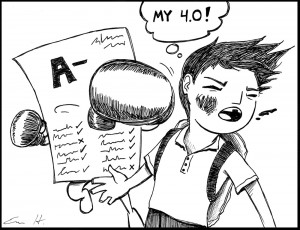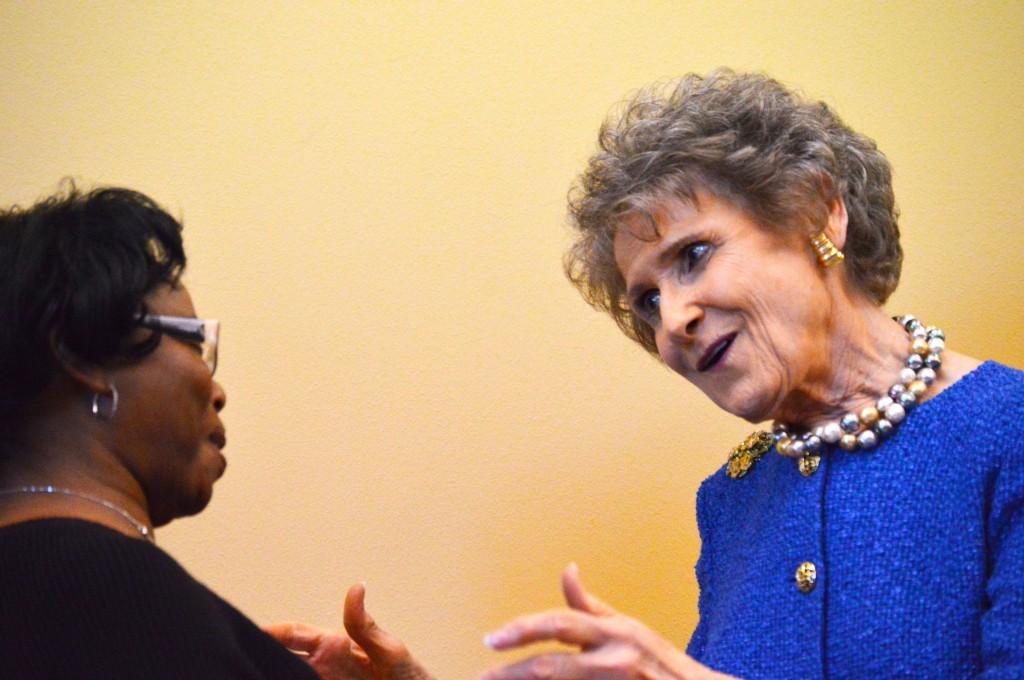
Too often, high-achieving students panic and cave when they can’t immediately achieve their goals and then have trouble asking for help. Unfortunately, when they falter, it seems like they’re met with contempt from authority figures in their lives, especially the parents they’re so concerned with pleasing.
Everyone fails at something eventually, but someone who’s been told they can’t fail, they shouldn’t fail, they “have no reason to fail,” has no way to cope and learn from the experience.
Cheating in high school and college is incredibly prevalent today, thanks to the Internet and cellphones. The Josephson Institute Center for Youth Ethics’ 2012 Report Card on the Ethics of American Youth found that 51 percent of the students they surveyed admitted to cheating on an exam.
More and more students are resorting to cheating, but struggling students aren’t the main culprits anymore. Instead, it’s the high achievers, the last group a teacher would suspect.
Students in the top 10 percent shouldn’t feel the need to cheat. The dishonesty could be a product of arrogance, or it could be the exact opposite: anxiety brought on by high expectations and the crippling fear of failure.
That’s not to say it doesn’t start out as both. Teenagers are prone to feeling special, sometimes to the point of having inflated beliefs about their own uniqueness, as if the whole world is a movie and they are unquestionably the protagonists.
It sounds like these kids couldn’t possibly be suffering until one remembers the protagonists in films are under constant scrutiny, their every move criticized by an audience of thousands whom they never see, their every weakness and flaw under a microscope.
This cognitive distortion, called “the personal fable,” by psychologist David Elkind, feeds right into the parents’ generally positive message that their child is special and capable of anything, but in a toxic way. College-bound high school students in this trap are perfectionists who are about to have their perceptions about themselves, which are so closely tied to their achievements, shattered the moment they run into trouble.
When anyone struggles in school, they should feel free to admit it and seek help, but someone who’s putting themselves on the spot may freeze completely because as far as they were concerned, this was nowhere in the script.
Having no idea how to handle it, the students are caught in a vicious cycle of delusions of grandeur and self-loathing, wearing them down further and further.
Worst-case scenario? Everyone just shrugs at the students’ angst instead of helping, writing it off as a symptom of being a chronically self-absorbed Millennial and nothing more. Parents get angry, wonder why their kid broke and lay even more pressure on them to fix it while teachers consider it a harsh but necessary reality check.
The students, completely self-aware, feel as though they deserve what they’re going through while everyone around unconsciously feels the same.
It shouldn’t be this way. The complete miscommunication between parents, students and their teachers is painful to watch. It’s obvious that these students care about their grades. Their fear and pain shouldn’t be written off under any circumstances.
Sure, it comes in part from self-absorption, but it’s no less crippling than any other school-related anxiety.




























